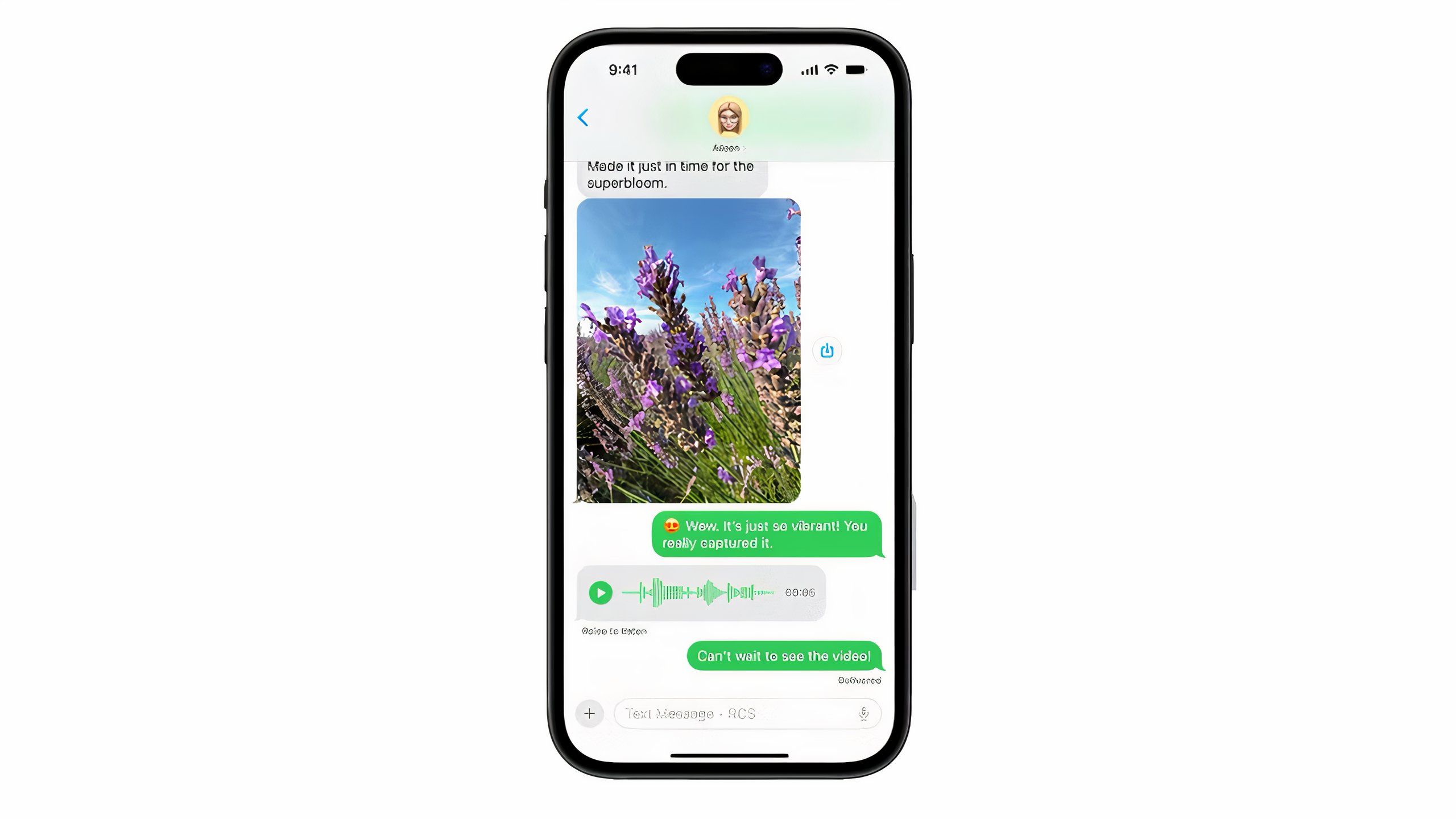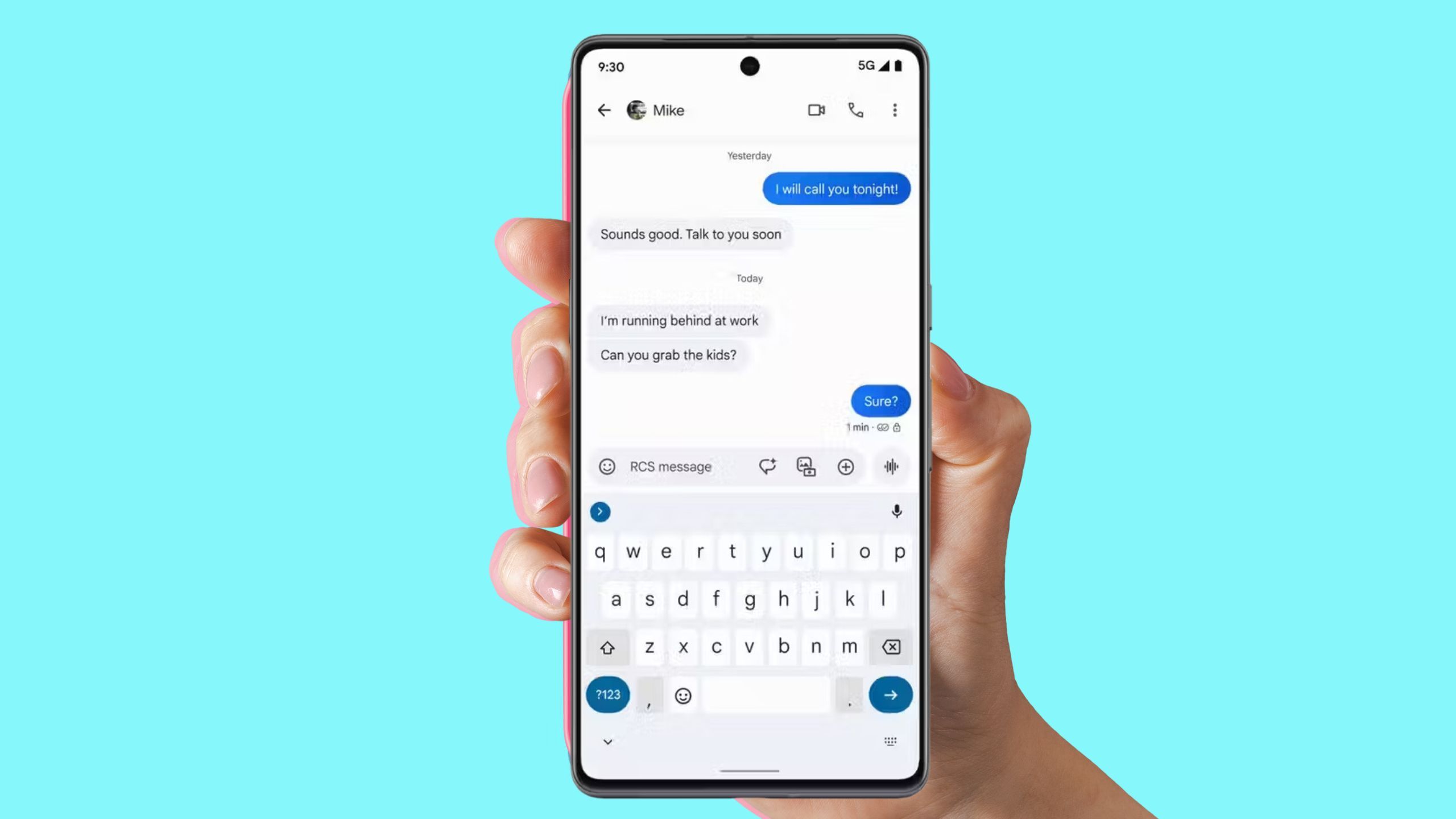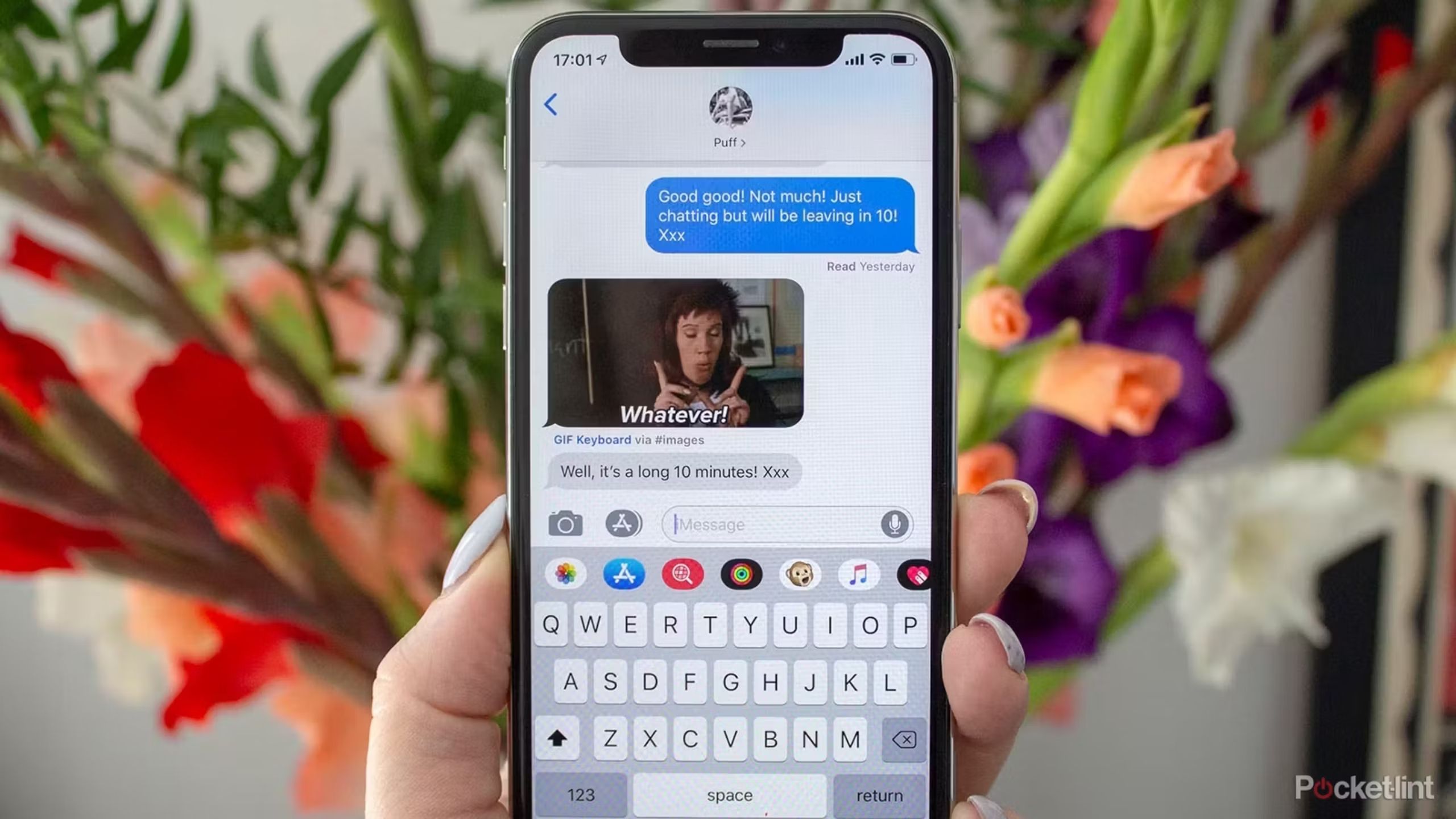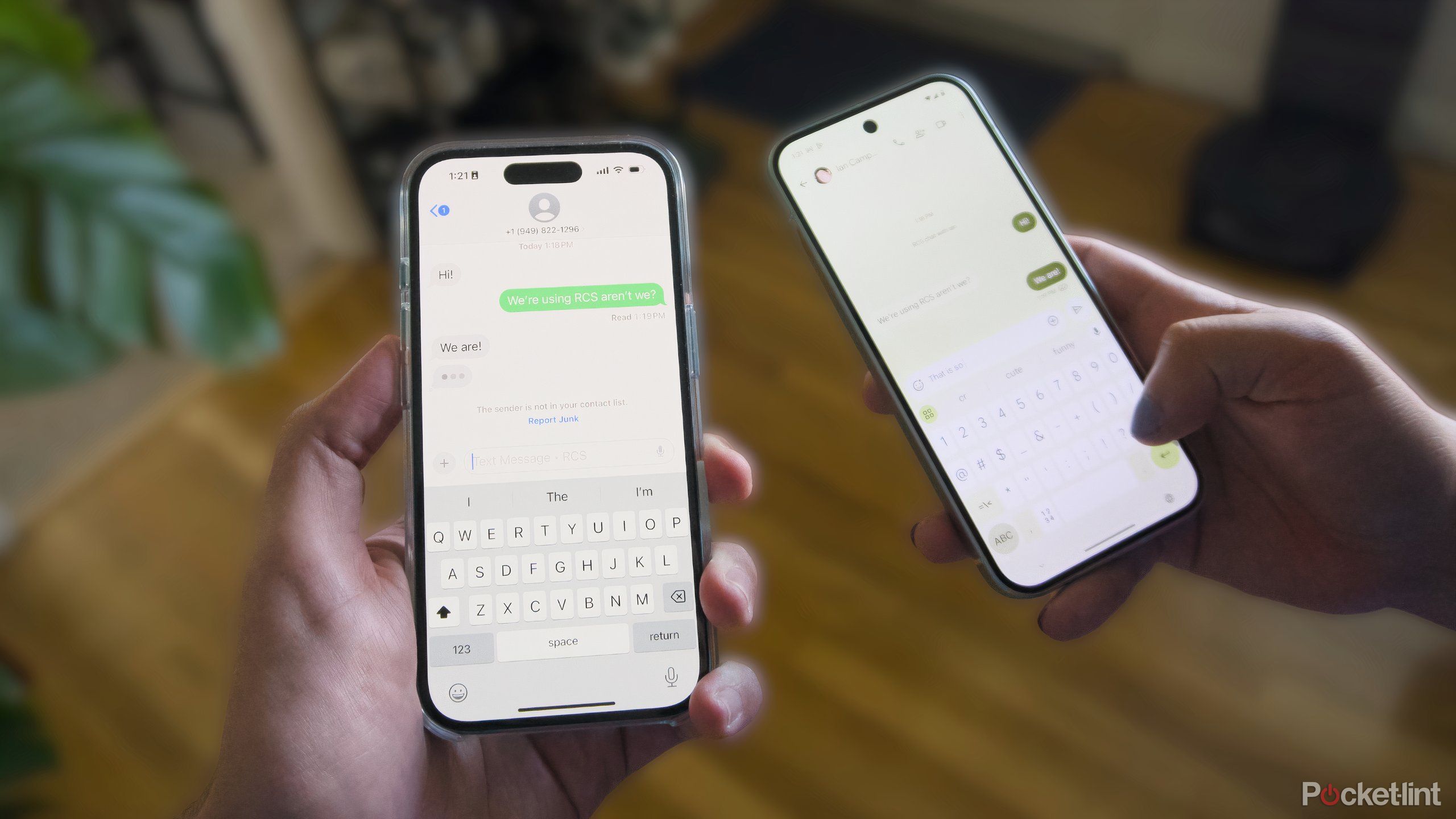
Key Takeaways
- RCS support in iOS 18 is a mixed bag.
- Automatic updates could mean that not everyone is even running iOS 18, yet.
- Apple’s focus is still on iMessage over improving RCS because it prefers selling more iPhones.
Supporting RCS, or “rich communication services,” with iOS 18 was supposed to change everything. The technology modernizing carrier-based messaging on Android was going to bring all the benefits of iMessage to chats between iPhones and Pixels. Instead, because of a multitude of factors, it already feels inconsequential.
Apple announced it would adopt RCS on the iPhone in November 2023 as part of its next yearly software update. The company made the announcement sandwiched between multiple changes it was making to comply with the European Union’s Digital Markets Act, though the change itself appears to have more to do with keeping carriers in Asia happy than opening up the company’s approach to software.
Whatever the reason Apple complied, RCS was supposed to make messaging Android devices like iMessage. But Apple’s rollout of the tech has been more than a little bumpy, not working correctly on some phones, not available to all carriers, and not enabled by the simple fact that not everyone has updated to iOS 18, but Apple has no incentive to care, and doesn’t have complete control over what happens anyway.
Related
Why Apple finally decided to bring RCS messaging to the iPhone
The iPhone will be adopting RCS later this year, but what took so long to get here? Plus, what should you expect when it arrives?
What RCS does to make messaging better
Modern messaging, with larger files, and more than just text
Apple / Pocket-lint
RCS was created by the GSMA, an international organization composed of carriers, network providers, and smartphone makers, as the alternative to SMS and MMS. It combines the features of both, and adds in other modern touches like read receipts, to make texting work and feel more like the messaging apps that sprung up to make up for the shortcomings of the GSMA’s other standards.
The Universal Profile is the RCS specification GSMA created that companies have to adopt, to interoperate with other companies using RCS. The features you’ll get after adopting the Universal Profile are pretty straightforward, especially if you already use iMessage on the iPhone or an app like WhatsApp. You’ll get things like:
- More room for image and video files
- Read receipts
- GIFs
- Audio messages
- Group messaging
- Longer messages
What RCS doesn’t do is change how non-iMessage messages appear on an Apple device. They’ll still be green, and if RCS is for some reason not available, an iPhone will drop back to SMS or MMS as a last resort. RCS chats are also not end-to-end encrypted (only readable by the phones in the message or group chat), unlike chats in Apple’s Messages app, or chats in Google Messages, which uses an E2EE system Google bolted on top of the normal vanilla Universal Profile.
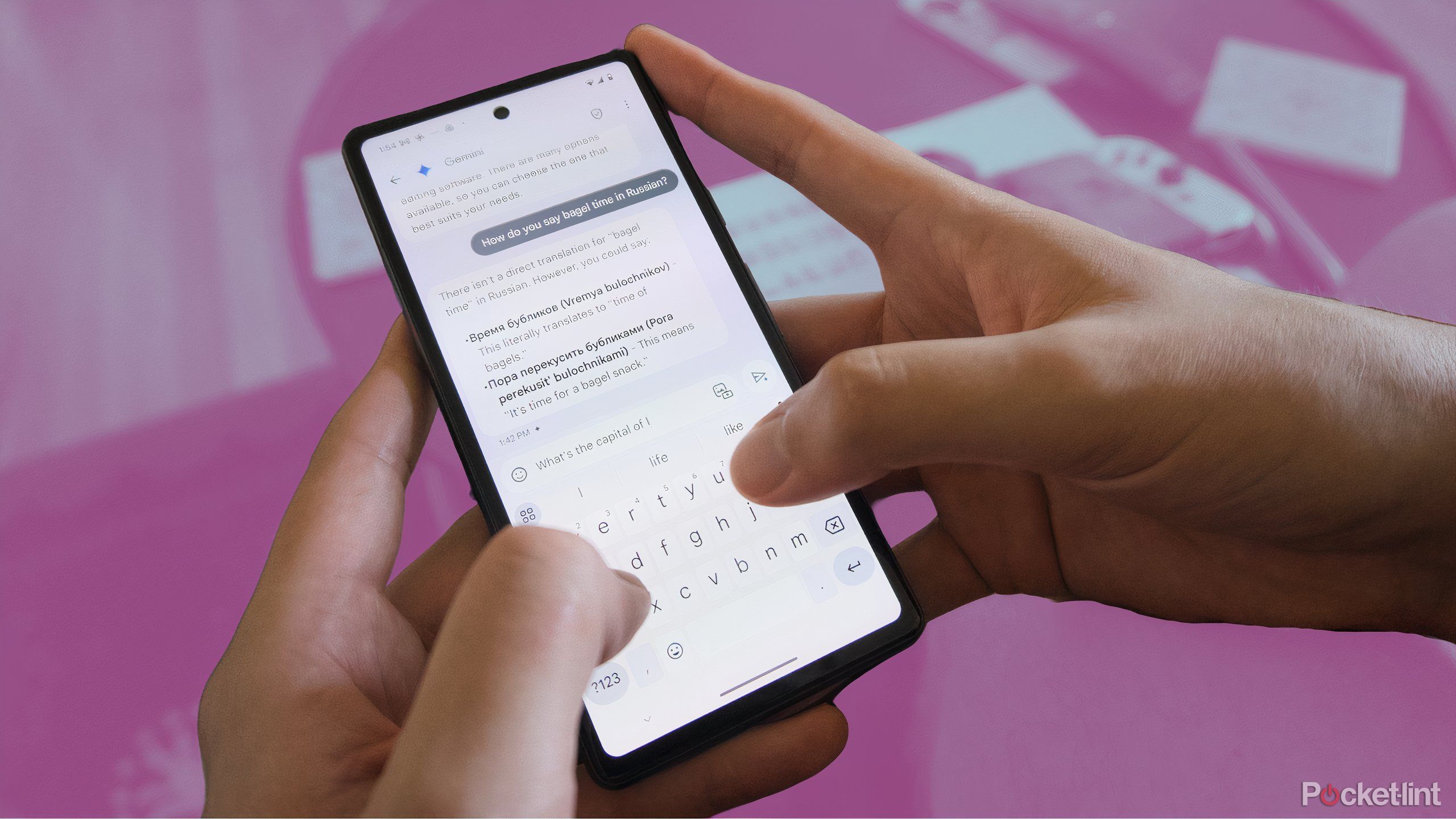
Related
How to use Gemini in Google Messages
It’s much easier to access Gemini in Google Messages than a separate app, but what it can actually do might not be useful for everyone.
That Samsung, one of the largest Android phone makers in the world, opted to use Google Messages rather than its own messaging app didn’t happen by accident. It’s the result of multiple years of campaigning from Google. First adopting RCS in its own app, then offering to host RCS chats for carriers via its service Jibe, and finally making things even simpler by just getting phone makers to pre-install Google Messages so RCS chats are encrypted by default.
The other major standard Apple has contributed to in the last few years is
Matter
, the protocol designed to allow smart home devices to talk to each other.
An iPhone using RCS is still better than one that isn’t. And Apple has at least said it wants to contribute to RCS so that future chats can be encrypted without having to use Google Messages. But it’s clear that RCS isn’t the life-changing change that it wasn’t claimed to be, and might not solve the social stigma that may or may not exist around green bubbles.
And that’s before I’ve touched on the issues iPhone owners have reported with the current implementation of RCS.
The issues with RCS in iOS 18
Not every carrier is able to enable RCS
Google/ Pocket-lint
A major issue with RCS in iOS 18 as it stands now is that not every carrier supports it. While Verizon, T-Mobile, and AT&T are able to transfer RCS messages to their appropriate recipients, MVNOs (Mobile Virtual Network Operators) like Google Fi Wireless and Mint Mobile apparently can’t — because Apple won’t let them. After some Fi users reported that their iPhones running iOS 18 were still sending SMS messages, Google told 9to5Google that the issue was Apple, not the carrier. “Only Apple has the ability to enable RCS interoperability for iPhone users on Fi, and our hope is that they will do so in the near future,” the statement says.
“Only Apple has the ability to enable RCS interoperability for iPhone users on Fi, and our hope is that they will do so in the near future,” the statement says.
Apple now publishes a list of wireless carriers and which iPhone features they support, and you can see that Mint Mobile and a few others don’t support RCS, and Google Fi Wireless isn’t listed at all. If it really all is on Apple, it’s not clear why the company would be slow to enable the feature on some MVNOs, especially MVNOs that are technically using networks owned by larger carriers that already support RCS, but it’s a real sticking point.
Automatic updates mean that not every phone can use RCS
Then there’s the issue of updating to iOS 18. If you have automatic updates enabled, then it’s quite possible you haven’t updated to iOS 18 yet. Apple can sometimes wait up until a month after a numbered update is released to push it out to all the devices that can run it. These staggered releases make it easier to prevent catastrophic bugs from being on everyone’s device at the same time. That way, once everyone is running the latest software, issues have been ironed out, and sometimes delayed features are available.
iOS 18 hasn’t had any disastrous issues (though Apple has already pushed out iOS 18.01), but iPadOS 18 has been a bit of a mess. After iPadOS 18 bricked some new M4 iPad Pros, Apple pulled the update entirely and still hasn’t rolled it out to its most expensive tablet. That’s yet another obstacle to more people using RCS.
RCS itself doesn’t always work as expected
Since the update rolled out, another thing users have noticed is inconsistent performance. RCS group messages can break if one person tries sending a message as an SMS message (which can happen if you lose your internet connection). Some iPhone owners have also reported that RCS messages can sometimes take longer to arrive than a more traditional message, which likely has to do with how carriers are handling chats.
It would be simple to lay all of these issues at Apple’s feet, but it’s as much a problem of how cellphone networks provide their various services as it is the half-hearted way Apple decided to support RCS on the iPhone.
iMessage is its own advantage
Apple would still prefer that everyone just buys an iPhone
Before Apple decided to support RCS, its long-standing stance was that messaging on an iPhone was just better, and the best solution for anyone trying to improve messaging between Android devices and iPhones was to just buy an iPhone. There are very few incentives for Apple to improve open standards or adopt practices that might make it easier to stop using an iPhone.
For as much as the company claims to care about its customers’ privacy, it won’t let that belief get in the way of more money. iMessage and the Messages app are fantastic products, and have been since the company introduced them with iOS 5. Why upset a system that’s already selling iPhones?
There’s really no reason for Apple to make the current implementation of RCS better, and so much of the experience is determined by how well carriers hold up their end of the bargain, it makes sense that the company wants to wash its hands of the whole thing. RCS was not a revolution, it will make messaging better, but until there’s a reason for Apple to care or a way to make carriers do a better job, don’t expect it to ever be as seamless as iMessage.
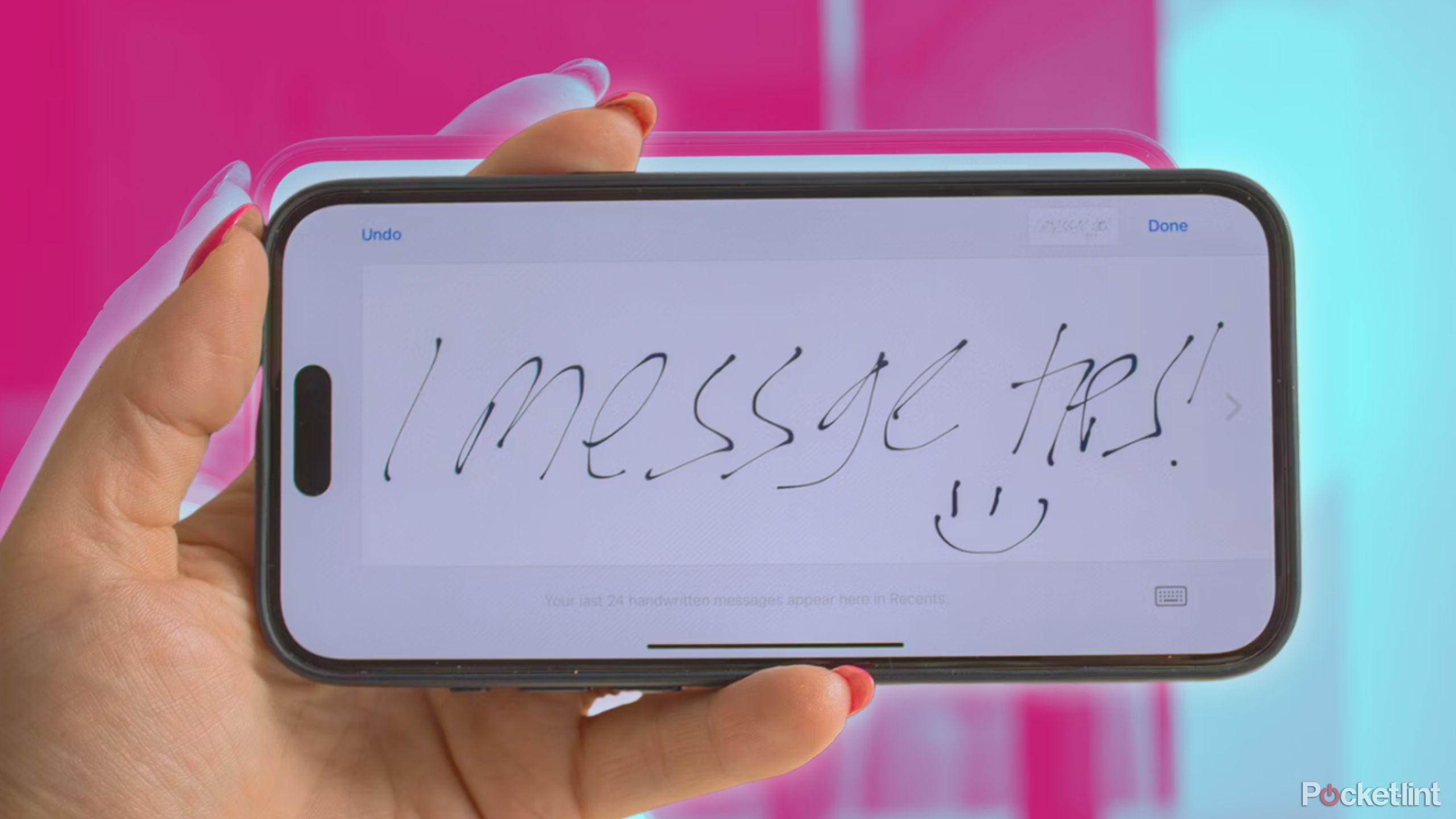
Related
31 actually useful iMessage features, tips, and tricks
Here’s everything you need to know to get the most out of Apple’s Messages app.
Trending Products

